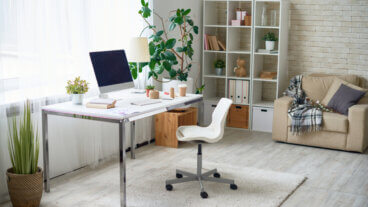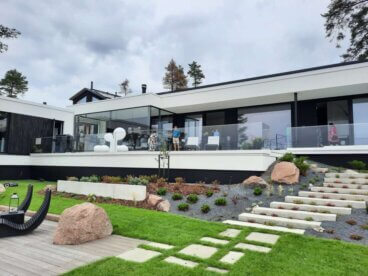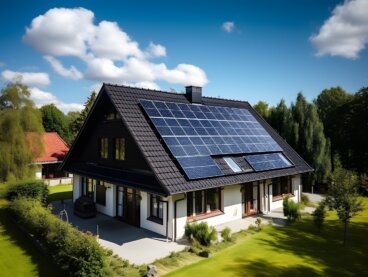Five Tips for Saving Water in Your Garden

You’ll be delighted to know that saving water in your garden is possible and we’ll teach you how to do it with these incredible tips. Gardening is an activity that many of us enjoy, but we must be honest, water use is usually high, even more so if we’re talking about a large garden.
If you’re also concerned about the well-being of the environment, as well as your plants, you need to continue reading. This article will prove very useful indeed!
The best tips for saving water in your garden
Water is one of the most important natural resources and it’s essential for life on planet Earth. However, indiscriminate spending and contamination of water sources, among other problems, have led to its scarcity.
Additionally, its cost has risen, representing an increasingly high expense for families. If you have a garden and enjoy its maintenance, we want to give you some tips to save water that’ll be very useful for you.
Read on and start putting these tips into practice. Your plants will be healthy, you’ll take care of our planet and you’ll save money on each bill. Let’s get started!
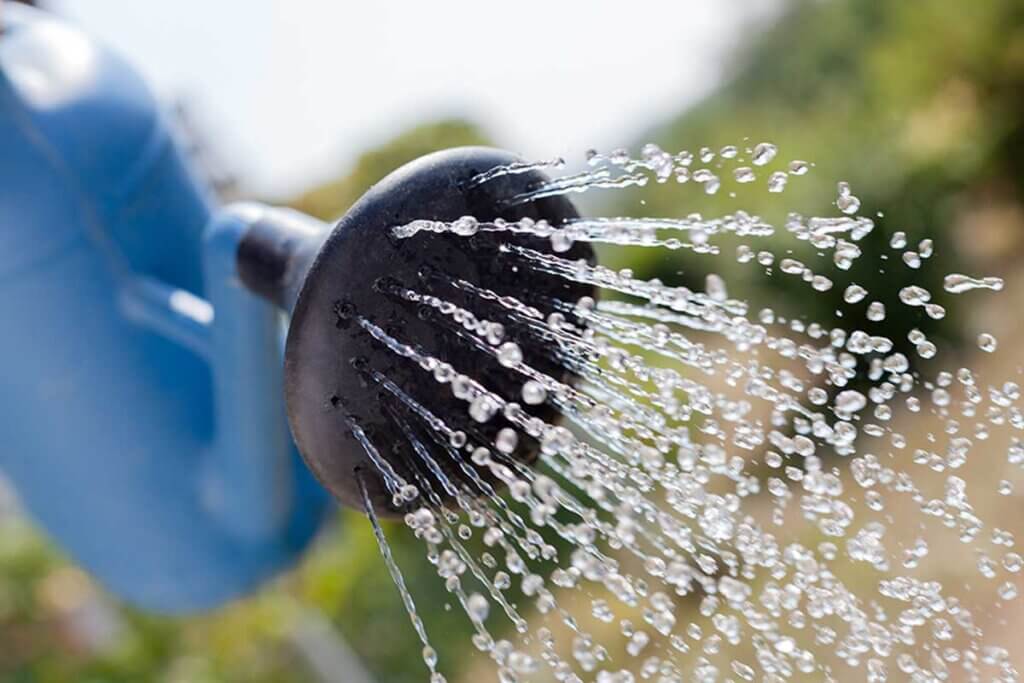
1. Saving water in your garden: don’t abuse irrigation
While this isn’t about reducing the amount of water your plants require, we do recommend that you’re precise with the resource. Oftentimes, we’re all guilty of leaving the automatic irrigation system for longer than we should or we use the hose indiscriminately. This increases our spending and affects our planet.
In addition to saving water, by being cautious, you’ll prevent your plants from drowning and from rotten roots. A good practice is to put deep dishes filled with water underneath your pots. Your plants will then take the liquid as they require it, you just have to make sure that the dishes are always full.
2. Rainwater is a great ally
The water that falls when it rains is perfect for watering your plants, plus it’s free and doesn’t generate any cost in your monthly bill. Collecting it is very simple, you just have to place some buckets outside and let them fill.
It’s best to locate them close to the downpipes that transport and remove rainwater. This can then be stored and used according to the specific requirements of your garden.
3. Reuse water from other activities
Think about the types of activities where you waste the most water. There are several and here are some examples:
- Collect the cold water that you let out of your shower while regulating the temperature. Don’t let it go to waste! Instead, use it for watering your plants.
- When you boil vegetables or hard-boiled eggs, let the water cool down and use it to water the plants. You’ll even add some extra nutrients to the soil, such as calcium.
- If you have an air conditioner that leaks water, place an empty bottle at the end of that tube. That water is suitable for you to use to water your plants.
- You can also collect the water from the last wash cycle of the washing machine. This water comes out practically clean and can be reused in your garden.
4. Saving water in your garden: install a smart irrigation system
Smart or well-programmed irrigation systems are one of the best tips for saving water in your garden. The best ones are the drip ones, as they allow you to adjust the amount of water your plants require, as well as the time at which the irrigation should start and stop.
However, the cost of irrigation systems can be somewhat high, which doesn’t allow it to be within everyone’s reach.
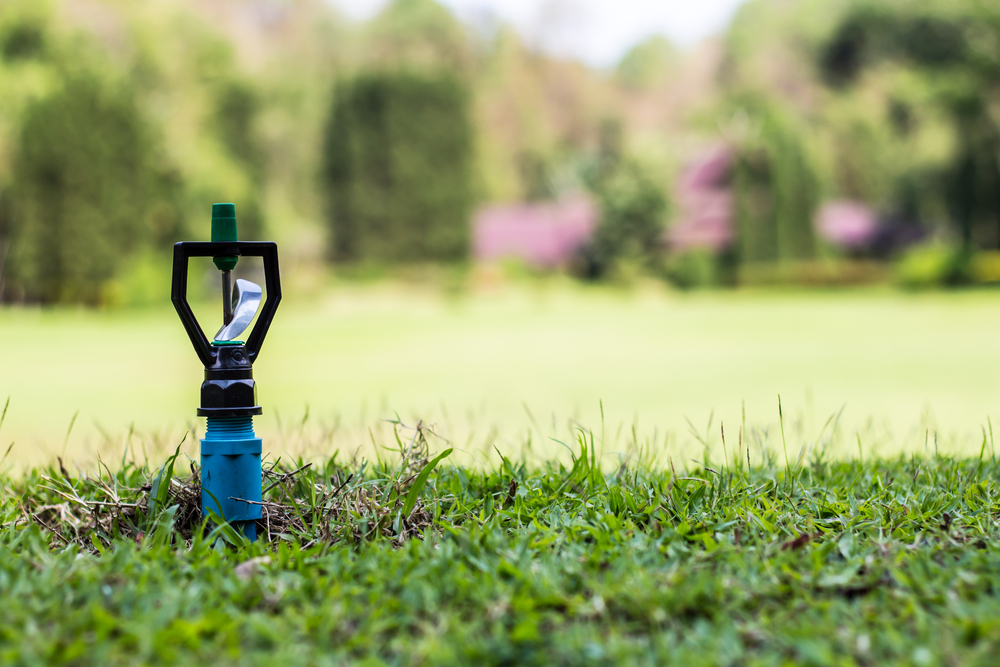
5. Choose local plants and take care of garden conditions
We finish these tips to save water in your garden by recommending that you plant local species, as they’ll adapt better to climatic conditions. This will prevent you from having to water them more than necessary to keep them healthy.
Place bases or padding on the plants too. By doing this, you’ll prevent the water from evaporating much faster. You can use straw, leaves, or gravel. Equally, you must also eliminate weeds, since they take water, that’s for the plants themselves.
What other tips for saving water in the garden can you think of?
Keep in mind that more plants die from over-watering than from under-watering. Therefore, avoid wasting this most valuable resource for living beings whenever you can. Identify what other practices lead you to waste water and put an end to them where you can.
You’ll be delighted to know that saving water in your garden is possible and we’ll teach you how to do it with these incredible tips. Gardening is an activity that many of us enjoy, but we must be honest, water use is usually high, even more so if we’re talking about a large garden.
If you’re also concerned about the well-being of the environment, as well as your plants, you need to continue reading. This article will prove very useful indeed!
The best tips for saving water in your garden
Water is one of the most important natural resources and it’s essential for life on planet Earth. However, indiscriminate spending and contamination of water sources, among other problems, have led to its scarcity.
Additionally, its cost has risen, representing an increasingly high expense for families. If you have a garden and enjoy its maintenance, we want to give you some tips to save water that’ll be very useful for you.
Read on and start putting these tips into practice. Your plants will be healthy, you’ll take care of our planet and you’ll save money on each bill. Let’s get started!

1. Saving water in your garden: don’t abuse irrigation
While this isn’t about reducing the amount of water your plants require, we do recommend that you’re precise with the resource. Oftentimes, we’re all guilty of leaving the automatic irrigation system for longer than we should or we use the hose indiscriminately. This increases our spending and affects our planet.
In addition to saving water, by being cautious, you’ll prevent your plants from drowning and from rotten roots. A good practice is to put deep dishes filled with water underneath your pots. Your plants will then take the liquid as they require it, you just have to make sure that the dishes are always full.
2. Rainwater is a great ally
The water that falls when it rains is perfect for watering your plants, plus it’s free and doesn’t generate any cost in your monthly bill. Collecting it is very simple, you just have to place some buckets outside and let them fill.
It’s best to locate them close to the downpipes that transport and remove rainwater. This can then be stored and used according to the specific requirements of your garden.
3. Reuse water from other activities
Think about the types of activities where you waste the most water. There are several and here are some examples:
- Collect the cold water that you let out of your shower while regulating the temperature. Don’t let it go to waste! Instead, use it for watering your plants.
- When you boil vegetables or hard-boiled eggs, let the water cool down and use it to water the plants. You’ll even add some extra nutrients to the soil, such as calcium.
- If you have an air conditioner that leaks water, place an empty bottle at the end of that tube. That water is suitable for you to use to water your plants.
- You can also collect the water from the last wash cycle of the washing machine. This water comes out practically clean and can be reused in your garden.
4. Saving water in your garden: install a smart irrigation system
Smart or well-programmed irrigation systems are one of the best tips for saving water in your garden. The best ones are the drip ones, as they allow you to adjust the amount of water your plants require, as well as the time at which the irrigation should start and stop.
However, the cost of irrigation systems can be somewhat high, which doesn’t allow it to be within everyone’s reach.

5. Choose local plants and take care of garden conditions
We finish these tips to save water in your garden by recommending that you plant local species, as they’ll adapt better to climatic conditions. This will prevent you from having to water them more than necessary to keep them healthy.
Place bases or padding on the plants too. By doing this, you’ll prevent the water from evaporating much faster. You can use straw, leaves, or gravel. Equally, you must also eliminate weeds, since they take water, that’s for the plants themselves.
What other tips for saving water in the garden can you think of?
Keep in mind that more plants die from over-watering than from under-watering. Therefore, avoid wasting this most valuable resource for living beings whenever you can. Identify what other practices lead you to waste water and put an end to them where you can.
